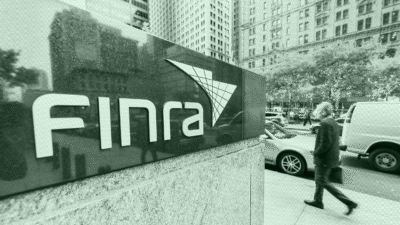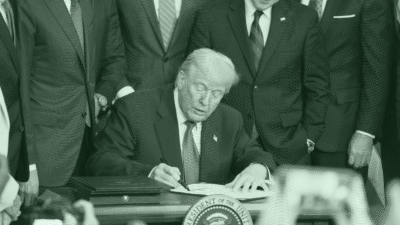Fund Fees Hit Record Lows Last Year – And Maybe Rock Bottom
It took more than a decade, but fund fees may have finally hit their lowest possible levels, according to the latest Morningstar research.

Sign up for market insights, wealth management practice essentials and industry updates.
Asset managers may have finally realized that giving away funds at bargain-basement prices ain’t paying the bills.
It took more than a decade, but fund expenses may have finally hit their lowest possible levels, according to the latest Morningstar research released this week. Investors paid the least in fees for mutual funds and ETFs of any year on record in 2023 with an average expense ratio of just 36 basis points. While it’s a potentially lucrative drop of 3.4% from 2022, the pace slowed from a 7.8% decline over the previous year and is expected to continue.
“Fees are the primary revenue driver for mutual funds and ETFs,” Morningstar research analyst Zachary Evens told The Daily Upside. “Generally, the higher the fee, the higher the revenue for the asset manager.”
Mo’ Fees, Mo’ Problems
Morningstar researchers estimate investors saved nearly $3.4 billion in fees last year, which has been a huge part of the success of cheap, passive investing in products like ETFs. Since fees eat into returns over long time horizons, anyone who’s ever heard of Warren Buffett knows that cheaper is better. “End investors benefit tremendously from lower fees,” said Evens, who is also a co-author of the study. “Since fees compound over time, the lower the fee, the more of a fund’s return the investor gets to keep.”
The bad news is that asset managers may be finally raising the white flag after years of slashing fees in a brutally competitive price battle that even led to one short-lived ETF that actually paid investors. Evens and his fellow researchers expect fund expenses to hold steady or continue to flatten moving forward.
Isn’t It Ironic? It all sounds hunky-dory for investors, but in a strange twist of fate, the study also found that lower fund fees may not actually be benefitting end clients at all. Instead, the savings may be getting siphoned to help pay for financial advisors, who often assist them in choosing and purchasing the funds. It’s commonplace for advisors to charge upwards of 1% on assets under management, or a flat-fee for providing financial advice.
The study also found fees increasing for certain products:
- Fees have gotten so low that some asset managers have even been quietly raising fees.
- Fees are quickly approaching the lowest possible price point, with many already charging less than 5 basis points.
- The launch of active and alternative ETFs were behind some of the fee increases last year.











